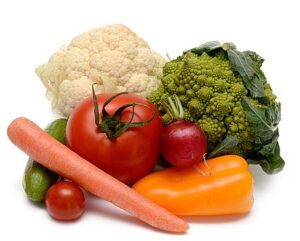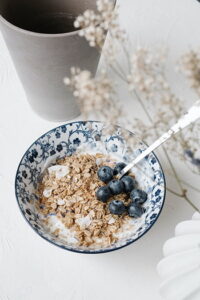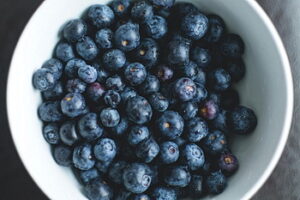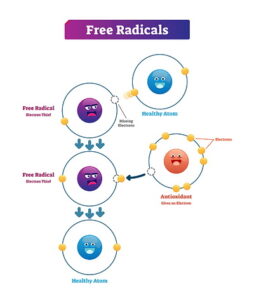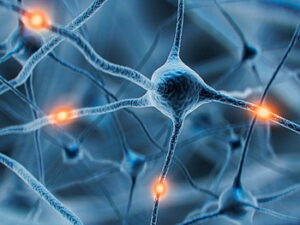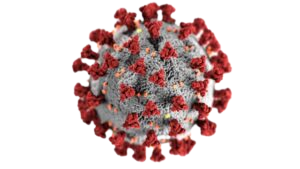 It’s no surprise when we say that COVID-19 is all over us and still, to this day, it is still spreading. Now quicker than ever, thanks to the Omicron vibrant! Fortunately, even though this strain is the most contagious that is infecting us now, it is also the most passive. For most of us, someone we know has already been infected including possibly you as well.
It’s no surprise when we say that COVID-19 is all over us and still, to this day, it is still spreading. Now quicker than ever, thanks to the Omicron vibrant! Fortunately, even though this strain is the most contagious that is infecting us now, it is also the most passive. For most of us, someone we know has already been infected including possibly you as well.
Vaccinated or Non Vaccinated – What’s the Difference?
There is a major difference. If you are not vaccinated, you stand the chance of getting more sick than those that have been given the jab. For the ones that have an immune deficiency and/or are elderly, your chances are higher, and subsequently, you may become severely ill, and possibly end up in a hospital. No one wants that!How Can I Protect Myself Against the Virus?
Having antibodies in your body is your best defense. They will shield you from the most serious ailments and keep you from such symptoms as extreme fatigue and other serious medical issues. If you are lacking too many of these antibodies, you could possibly end up hospitalized.How Do I Get These Antibodies?
 Easy, GET VACCINATED! When you are inoculated, the odds of you becoming seriously ill are greatly reduced, and when you get the booster shot, chances are you may only have cold symptoms. Maybe a headache or two, but you will recover usually in a few days.
It is important to note that even if you are vaccinated and you get the virus, you must still quarantine in order to keep others from getting infected.
Easy, GET VACCINATED! When you are inoculated, the odds of you becoming seriously ill are greatly reduced, and when you get the booster shot, chances are you may only have cold symptoms. Maybe a headache or two, but you will recover usually in a few days.
It is important to note that even if you are vaccinated and you get the virus, you must still quarantine in order to keep others from getting infected.
Eat Healthily!
All studies point to a healthy diet leading to a healthy life, not to mention an effective immune system. Stick to fruits and vegetables. Also, fish, especially salmon has been found to be excellent health food. Learn about what foods are good for you and what is not.How Do I Keep Safe Outside?
 Wear a mask! Use an N-95, which is the best type of mask that can protect you and others from the virus. Ensure that the mask covers your nose and mouth and secure it under your jaw.
Additionally, wash your hands frequently! Carry antibacterial hand sanitizer at all times. Even though the virus is not bacteria, these cleansers work. When you touch a doorknob, an item in a store, or something outside, wash your hands. This doesn’t mean that you need to do this every time but when you feel the need to do so. Most importantly, do not make contact with your eyes, nose, and mouth with unwashed hands.
Remain somewhere around 6 feet (around two arm lengths) from other
Stay away from large groups and inadequately ventilated indoor spaces.
Refer to the CDC frequently for updates.
Wear a mask! Use an N-95, which is the best type of mask that can protect you and others from the virus. Ensure that the mask covers your nose and mouth and secure it under your jaw.
Additionally, wash your hands frequently! Carry antibacterial hand sanitizer at all times. Even though the virus is not bacteria, these cleansers work. When you touch a doorknob, an item in a store, or something outside, wash your hands. This doesn’t mean that you need to do this every time but when you feel the need to do so. Most importantly, do not make contact with your eyes, nose, and mouth with unwashed hands.
Remain somewhere around 6 feet (around two arm lengths) from other
Stay away from large groups and inadequately ventilated indoor spaces.
Refer to the CDC frequently for updates.


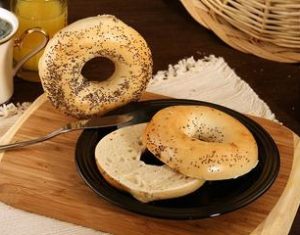
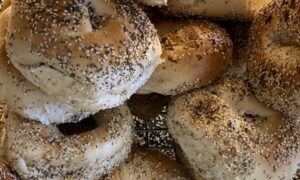 Continuing on our binge of healthy items at the bagel store, we have so spoken about eating healthy foods and what healthy foods are available at the bagel store, but we have not touched specifically on healthy bagels! That’s right. Healthy bagels!
Continuing on our binge of healthy items at the bagel store, we have so spoken about eating healthy foods and what healthy foods are available at the bagel store, but we have not touched specifically on healthy bagels! That’s right. Healthy bagels!  Whole grain bagels contain more vitamins, minerals, and fiber than regular bagels. Bagels that are billed as wholemeal are made from 100 percent wholemeal flour, but you can also eat standard bagels made from processed flour. However, do not assume that they always contain whole grains.
Whole grain bagels contain more vitamins, minerals, and fiber than regular bagels. Bagels that are billed as wholemeal are made from 100 percent wholemeal flour, but you can also eat standard bagels made from processed flour. However, do not assume that they always contain whole grains.